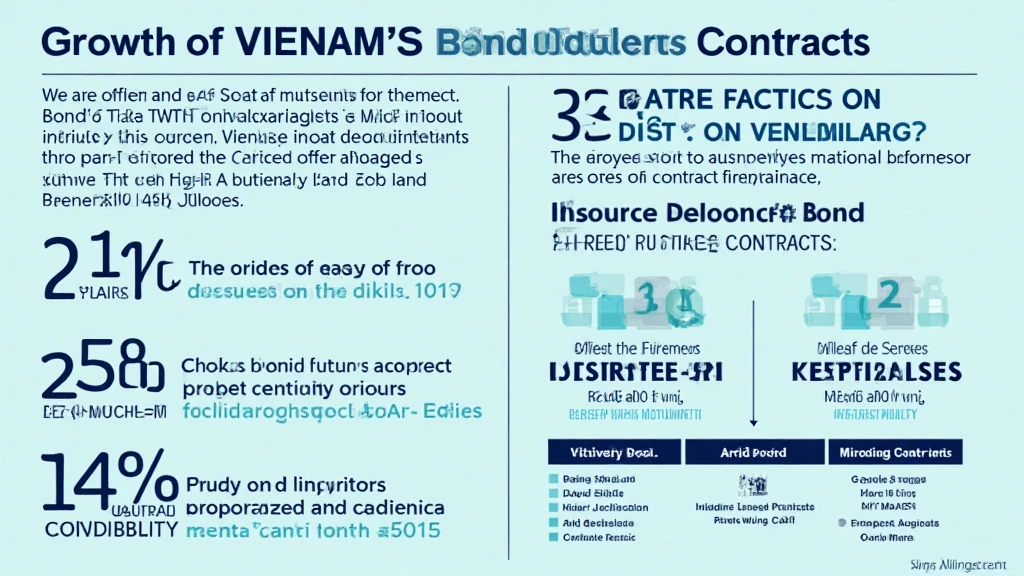Exploring Vietnam Bond Futures Contracts: A Deep Dive into Emerging Financial Instruments
Introduction
With an average growth rate of 12% in Vietnam’s financial sector over the past three years, the introduction of bond futures contracts marks a pivotal development in the country’s investment landscape. As a crucial instrument for hedging and speculation, these contracts are attracting both local and international investors. This article aims to delve deep into the Vietnam bond futures market—its structure, benefits, and implications, ultimately answering the question: why are bond futures becoming popular among Vietnamese investors?
Understanding Bond Futures Contracts
To grasp the significance of Vietnam bond futures contracts, we must first clarify what bond futures entail. Essentially, bond futures are agreements to buy or sell a bond at a predetermined price on a specified future date. This allows investors to hedge against price fluctuations, manage interest rate risk, and enhance trading strategies.
Types of Bond Futures
- Government Bond Futures: These are linked to national government bonds, reflecting the creditworthiness of the government, and are usually less volatile than corporate bonds.
- Corporate Bond Futures: These futures are tied to corporate bonds and carry different risk levels based on the issuing company’s financial health.
- Municipal Bond Futures: These futures involve state or local government bonds and serve as a way to finance public projects.
The Rise of Vietnam Bond Futures
As globalization increases, Vietnam’s participation in the financial markets expands. The emergence of bond futures is a response to the growing demand for sophisticated investment tools. The transition to more diverse products reflects a market that is maturing quickly.

Investment Landscape in Vietnam
According to the Vietnam Securities Depository, bond issuance has surged, with approximately 50 trillion VND (around $2.2 billion) issued in the first half of 2024 alone. This growth represents a significant opportunity for futures trading, particularly as more Vietnamese investors seek avenues beyond traditional stock investments.
Market Participants
A variety of players are interested in bond futures contracts:
- Institutional Investors: These include pension funds and insurance companies that seek stable, long-term returns.
- Retail Investors: As education around these products increases, more retail investors are engaging in the futures market.
- Foreign Investors: With Vietnam’s growing reputation in Southeast Asia, international traders are increasingly contributing to the bond futures market.
Benefits of Trading Bond Futures in Vietnam
Engaging in bond futures contracts comes with several benefits:
- Hedging Against Interest Rate Risk: Investors can hedge their exposures against volatility in interest rates, which is essential in uncertain economic climates.
- Leverage Opportunities: Futures allow investors to control a larger position with a smaller investment compared to buying underlying bonds.
- Enhanced Liquidity: Bond futures contribute to overall market liquidity, enabling easier entry and exit among market participants.
Challenges and Considerations
Despite the clear advantages, trading bond futures in Vietnam poses unique challenges. Market participants should be aware that:
- Regulatory Framework: The evolving nature of regulations can impact the operational aspects of trading futures.
- Market Volatility: Similar to other trading instruments, bond futures can exhibit price fluctuations that may lead to unexpected losses.
- Lack of Education: There remains a gap in financial literacy regarding derivative products, which could hinder participation from less experienced investors.
Market Outlook and Future Trends
With a growing middle class and an increase in disposable income, Vietnam’s financial landscape is on the brink of transformation. The future of bond futures is likely to see:
- Increased Participation: More sectors of the economy, including tech and real estate, will begin utilizing futures to manage risk.
- Technological Integration: Fintech solutions will play a role in enhancing access and education regarding bond futures.
- Product Innovation: Anticipation of more diverse products tailored to Vietnamese investor needs will emerge.
Conclusion
In conclusion, the Vietnam bond futures contracts represent a promising avenue for investors looking to navigate the complexities of the modern financial landscape. As the market grows and matures, having a solid understanding of these instruments becomes imperative. With emerging trends and the potential for innovation, bond futures could reshape investment strategies across the region. Therefore, engaging with these products—a critical factor for financial growth—will not only provide more opportunities for earning returns but also bolster the economic landscape of Vietnam itself.
As a takeaway, it is crucial for investors, whether local or foreign, to stay informed and agile in this evolving market. Initiatives like hibt.com provide invaluable insights into navigating these financial instruments effectively.
For further reading on related topics, check out our guide on Vietnam’s crypto tax regulations, or explore how to manage risk with crypto risk management strategies.
Expert Bio
Dr. Minh Nguyen is a financial analyst and blockchain technology consultant, with over 20 publications in the fields of finance and technology. Having spearheaded numerous successful audits for well-known projects, Dr. Nguyen is recognized for his expertise in financial derivative instruments.





